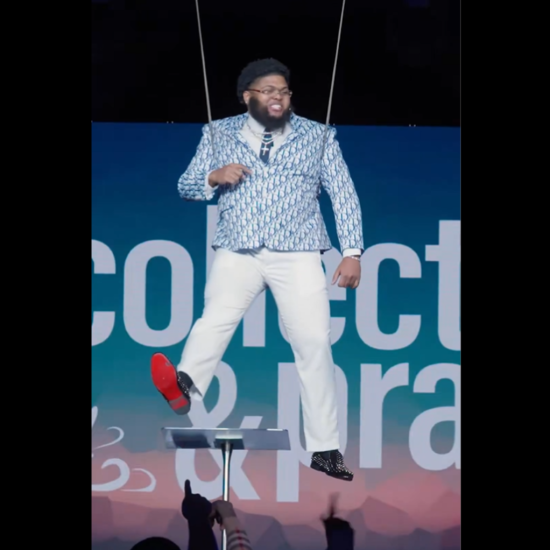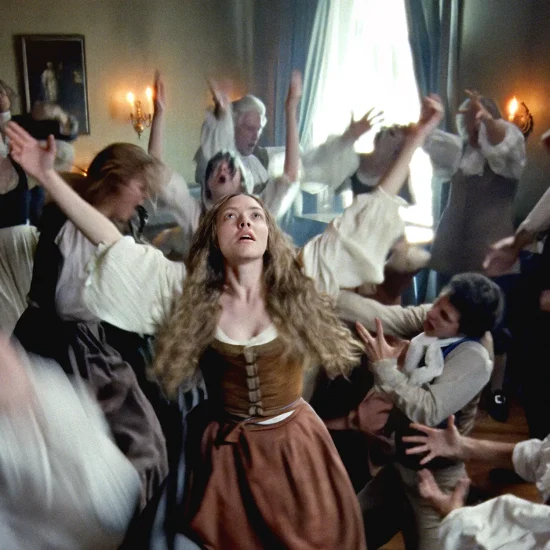
As his body twisted and contorted over twenty feet in the air, the entire stadium held its breath. Over four thousand miles away, my family sat gathered around the television to see if Mondo Duplantis of Sweden could clear a world record height in the pole vault at the Paris Olympics. As his hand released from the pole at just the right instant and his body levitated over the bar, the crowd erupted with cheers, and he returned to earth as a world record holder. The pole vault is a movement in four parts — each amazing in its own right. First, there is an equally awkward and elegant sprint with an impossibly long pole, the plant where the pole that once seemed ridged bends almost in two with the weight of the vaulter, the acceleration up over the bar where the vaulter hangs, floating for a split second, before the unceremonious fall to the mat below.

Sarah Blackwell
As I watched this time, I realized how so much attention and energy is focused on the majestic rise into the air that I had never really thought about the fall back to the ground. Yes, there is a giant mat, but falling from over 20 feet takes skill. We often concentrate so much on the climb that we forget about the descent. We hike to the top of mountains, but forget the strain on our knees as we come back down. We excitedly head out to a new place on vacation but fail to remember the blues that often accompany the re-entry into daily life. We attend a fantastic retreat but return home emptier than we started. We have our “mountain top” experiences but do not consider that coming down is a skill as well (even Moses needed two tries).
I will need some help descending from the Olympic high. The Olympics have felt like summer camp, and now it is the time to say goodbye to all our new friends and reminisce about the inside jokes and crazy stories of the summer. I feel like a kid looking forlornly out the window on the drive home. Someday we will hear the victory bell from the Olympics ringing in the rafters of Notre Dame as a reminder of the time we had together. Now, our only glimmer of hope is that we can reconnect with these friends and stories four years down the road in Los Angeles. Athletes, too, have been known to experience a post-Olympic depression, as many have reached the pinnacle of their careers and are now left asking what is next.
In the Christian life, we often talk about “mountain top” experiences — but rarely translate those experiences into real-life change. We leave the pinnacle without a good plan in place to sustain some of the energy and spirit of the event. What spiritual practices have we learned during this Olympics? Is there one practice that each of us could take with us and focus on to make this time not just a passing flash but a sustaining flame? Let me suggest some “Be-attitudes” we could take with us from the Olympics into the next season of our lives:
Be generous. We all saw the energy and enthusiasm around rapper Flavor Flav and his financial support for the US women’s water polo team after learning about the hardships and lack of funding the women have. I will not forget trying to describe to my boomer parents who Flavor Flav was, but what a cool moment it was when he got in the pool with them for an iconic photo. Who might you show unexpected generosity to this year?
Be honest. We all know that Snoop Dogg is now our official mascot, but my favorite part of his Olympic coverage was when he talked about his fear of horses and how his pal Martha Stewart (18-year-old me would be so confused) helped him feed the horses carrots at the equestrian events. I, too, am a little afraid of horses, so I connected with the anxiety Snoop felt having to cover this event. This vulnerability from a man who makes a living in a music world built on bold personas was refreshing and inspiring. Maybe sharing our vulnerable sides will help us connect with others in our daily lives as well.
Be bold. Sometimes the Olympics are not about earning a medal but about simply showing up. By taking up some space on the world stage, sometimes messages that are lost in the twenty-four-hour news cycle can be highlighted. I think of runner Kimia Yousofi from Afghanistan who finished her race two seconds behind the leader but ran to oppose the Taliban restrictions on women. As an exile from her homeland, her sharing the words “education,” “sport”, and “our rights” handwritten on the back of her race bib was one of the most poignant moments of the games. Maybe this is your year to take a stand on something meaningful to you.
Be authentic. If someone “won” the Olympics, it might have been pommel horse expert Stephen Nedoroscik. Fans gravitated to his clear sense of purpose and the way he leaned into his giftedness unapologetically. Here was someone who knew who he was — a self-described nerd taking the biggest stage in the athletic world. A close second would be US women’s rugby player Ilona Maher whose posts online are relatable and champion the diversity of humankind. You can be loved for just who you are. People are drawn to people with this sense of identity — who unabashedly live out who they are created to be.
Be curious. One of the saddest moments for me of the Olympics was during the opening ceremony when the boats with the athletes began to sail down the Seine. Announcer Mike Tirico said that usually during the parade of nations they share random facts about the countries and highlight some of the athletes, but since they were on ships with several countries together, they would just be watching them sail past. I groaned since that is my favorite part of the opening ceremony — tell me all the stories about the athletes, their entourage, their events, their clothing, etc.! Thankfully they did add some of this in as the broadcast went on (maybe a collective groan was heard?). The Olympics reminds us to take the time to learn other people’s stories and how that can bring diverse people together.

The Olympic flame burns during the opening ceremony in the Olympic Stadium at the 2020 Summer Olympics, July 23, 2021, in Tokyo. (AP Photo/Lee Jin-man)
Be supportive. One of my favorite things to see is athletes going to watch other athletes. I loved seeing LeBron James as one of the last fans standing in the rain at the sand volleyball venue or the friendly banter and support between the US men’s basketball team and the US table tennis players. Be a champion for those around you. Seek to fill the tanks of others and meet the needs of those around you.
Be exuberant. Most of the time we live a mundane life of similar patterns and events. However, like the fastest woman alive, Julien Alfred, and the people of St. Lucia, sometimes we need to just cut loose and celebrate. Watching athlete celebrations helps remind us of when we were children and could be wowed by simple pleasures. Make a goal of letting joy bubble to the surface and erupt in displays of enthusiasm.
Be humble. We all know that Simone Biles does the most amazing things we have ever seen on the gymnastics floor. However, who is Simone Biles talking about? Everyone else — her teammates and even her competitors. Her show of support to a would-be rival, Rebeca Andrade, on the podium reminds us that is okay to celebrate others as well.
Be open. We are good about getting set in our ways. We rarely try new things as we get older, thinking that exploration is a young person’s game. However, the next plan God has for us may be radically different than where we are now. Do you think that cyclist Kristen Faulkner thought she would be an Olympic gold medalist after her first bike riding lesson in New York City in her 20s? Sometimes you must take the first step not knowing where it all might end.
Be diligent. In story after story, we see the images of Olympians beginning their sport as young children and working for years to achieve the pinnacle of their sport. Images of six-year-old Katie Ledecky swimming remind us that it can be a long process with a lot of work along the way to reach our goals. Most of us do not have the fortitude to work this consistently toward a goal; however, sometimes we benefit spiritually from this type of discipline.
Be a neighbor. The Olympics reminds us that the whole world is our neighbor. In event after event, we have seen the extension of love to teammates and competitors. Paris did a remarkable job of trying to open the games to as many people as possible through their rethinking of the opening ceremonies, the Champions Plaza, and even letting people try their hand at the Olympic marathon course. A spirit of inclusion around the table will benefit all of our communities of faith.
While we cannot hope to do all of these, maybe we can choose one piece of the Olympic spirit to incorporate into our daily spiritual practices. These “fruits” of the Olympic spirit are worthy focuses for this next season of our lives. For me, I decided at a retreat earlier this year that I would focus on “savoring” this year. Not just savoring food like those delicious-looking double chocolate Olympic muffins, but savoring moments in time and place. I have seen the look of savoring on many faces of Olympians and their loved ones over the last two weeks. That is the kind of spirit I want to take with me. Soaking in the beauty, goodness, and peace of the special moments. Relishing in relationships, new and old. Celebrating the small joys of life. Being mindful of the extraordinary in the ordinary. I hope this will allow me to drift down gracefully from the Olympic high just like Mondo as he relaxed, let go of the pole, and glided into the record books.
Sarah Blackwell is a contributing writer at Word & Way and a graduate of the Gardner-Webb School of Divinity. She teaches in the Religion and Philosophy Department at Wingate University and is a D.Min. student at McAfee School of Theology. She could win Olympic medals in finding random lost objects and planning family road trips. Her intergenerational faith formation book, God is Here is available through Amazon and other online book retailers. Follow her writings at www.proximitytolove.org.






